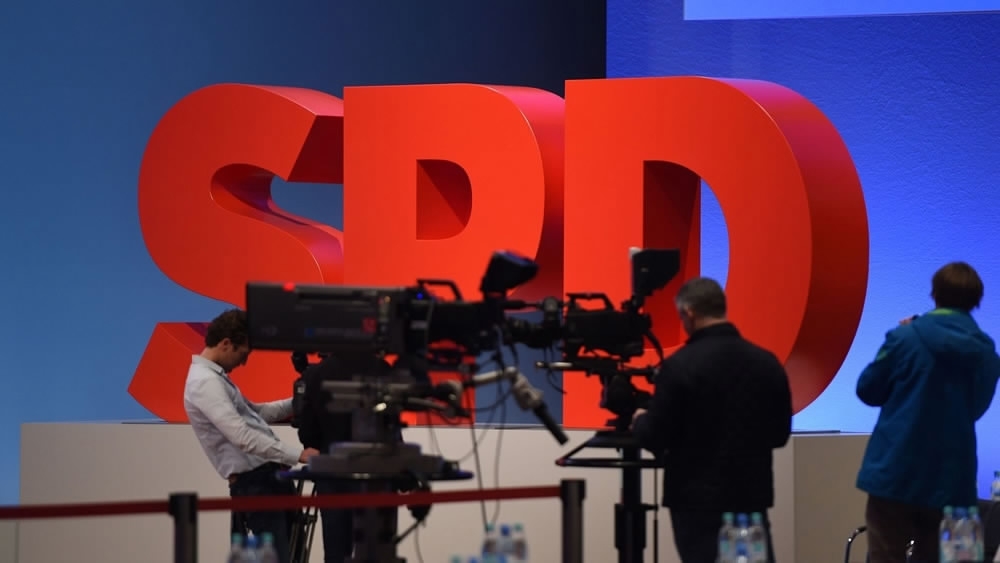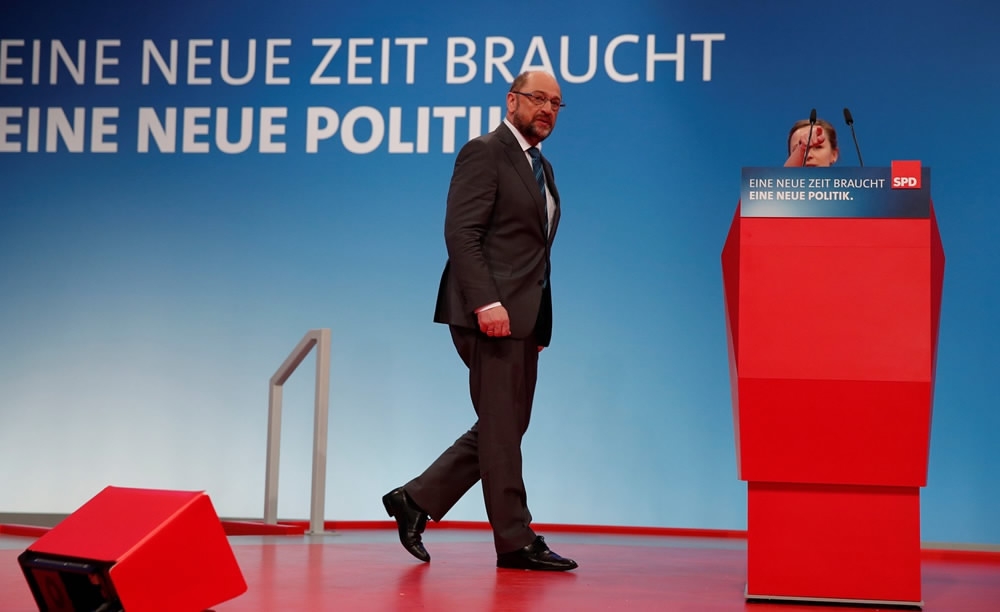
Politics
09:46, 21-Jan-2018
German SPD leaders confident about entering coalition talks
CGTN

Senior members of Germany's Social Democrats (SPD) said on Saturday they were confident the party would approve the start of formal coalition talks with Chancellor Angela Merkel's conservatives at a special congress this weekend.
The upbeat comments came after the SPD's biggest regional branch in North Rhine-Westphalia recommended its members to vote in favor of entering negotiations, on condition that party leader Martin Schulz pushes for more concessions on labor, health and migration policies.
Around 600 SPD delegates vote on Sunday on whether their leaders should press ahead with talks on renewing an alliance with the conservatives that has governed Germany since 2013.

SPD leader Martin Schulz inspects the convention hall prior to a one-day party congress under the slogan "New times need new politics" in Bonn, Germany, January 20, 2018. /VCG Photo
SPD leader Martin Schulz inspects the convention hall prior to a one-day party congress under the slogan "New times need new politics" in Bonn, Germany, January 20, 2018. /VCG Photo
The two groups struck a preliminary deal last week but Schulz is facing a strong backlash from the SPD's left and youth wings, which argue that the blueprint does not bear enough of the party's hallmarks.
They say the SPD would be better off in opposition after last year scoring its worst election result since Germany became a federal republic in 1949.
Schulz defended the preliminary deal.
"Toll-free day care facilities for children, a strong Europe and decent care of the elderly – that will only happen when we join the government," Schulz said in a tweet.
"To seize the opportunity to considerably help many people is a duty for me," Schulz added.
SPD parliamentary leader Andrea Nahles said she still expected formal talks to happen.
"I expect a majority to back coalition negotiations," Nahles told Welt am Sonntag newspaper. "Nevertheless, I ask everyone in my party to take responsibility: Please consider the consequences if this government option fails."

People watch German Chancellor and Christian Democrat (CDU) Angela Merkel (L) debating with SPD chancellor candidate Martin Schulz in Dusseldorf, Germany, September 3, 2017. /VCG Photo
People watch German Chancellor and Christian Democrat (CDU) Angela Merkel (L) debating with SPD chancellor candidate Martin Schulz in Dusseldorf, Germany, September 3, 2017. /VCG Photo
Speaking to reporters in Bulgaria, Merkel said she hoped the SPD would approve the start of formal coalition talks.
"We will wait for the SPD party congress and then hopefully start coalition talks," Merkel said.
A negative vote by the SPD on Sunday would prolong political deadlock in Europe's largest economy, which has been without a government since the September 24 election that weakened both blocs.
Possible scenarios then would include new elections or a minority government for what would be the first time in Germany's post-war era.
7833km
Source(s): Reuters

SITEMAP
Copyright © 2018 CGTN. Beijing ICP prepared NO.16065310-3
Copyright © 2018 CGTN. Beijing ICP prepared NO.16065310-3